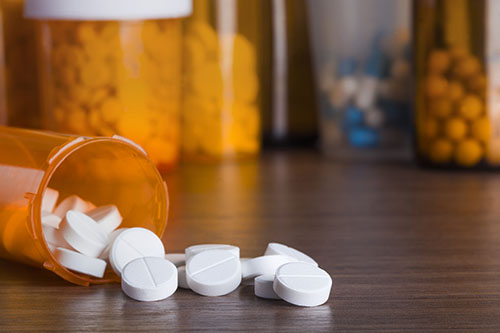
Opiate Addiction And The Devastating Facts
In 2017, over 72,000 people died from drug overdoses according to the Center for Disease Control (CDC). This was the worst year ever for this type of death. Nearly the same amount suffered from non-fatal overdoses during the same period. Of these over doses, two-thirds of them were directly related to opiate use.
Think about it. 72,000 people dying in one year from drug overdoses. This is more than all the people who died in the Vietnam War and Iraq war combined over the entire length of time of these wars. In one year, opiates have destroyed more lives and hurt more families than two wars. Many rehab centers offer a family recovery program that can help your loved ones work through their addiction.
Sadly, with the increased use of drugs like fentanyl on the streets, the figures for 2018 are not looking any better.
Health Conditions Also Worsen
For those who are abusing opiates, but not to the point of lethal overdose, the news is not any better. Health conditions for people abusing opiates has taken a serious turn for the worse.
Most people with an opiate addiction risk heart, lung and kidney diseases and disorders because the opiates slow their bodily functions and do not allow these organs to work properly. Many people who have this type of addiction also suffer from malnutrition. They may eat regularly, but the food is so poor in nutritional value that it takes its toll on the body over time.
Another devastating health effect of addiction is dehydration. People who have opiate addictions have a tendency not to consume enough water or liquids to remain healthy. The lack of liquids in the body can cause further damage to every organ, lead to premature aging, and cause the brain to not function at peak performance from lack of water and nutrients.
Substitution Is Not The Answer
There has been a large push to help people overcome their opiate addiction by giving them herbal supplements that are similar to opiates, commonly known as Kratom, or encouraging the use of marijuana instead of using an opiate. Neither is the solution to this opiate crisis.
Taking one addiction and substituting it with another addiction will not solve the problem. People have already begun to overdose and die from Kratom. In fact the FDA has already begun to aggressively try to remove Kratom from the market because people feel that it is “all natural” and think they can use even more of the substance than the opiates, and are overdosing at a faster rate.
The only real solution is using a good rehabilitation center. Breaking the addiction and moving forward with your life drug-free is the only solution to the many issues associated with the escalating opiate problems.
Recovery Is Possible
Whatever the background issues are to your opiate addiction, the good news is that you can enter into recovery and live drug-free. You can reclaim your life. All you need is the assistance of a quality drug rehab center and a caring substance abuse counselor and the determination to live drug-free.
Drug rehabilitation is not like it used to be 30 years ago when people did not really understand how to effectively treat drug addiction. It has developed into a system that treats the entire person and not just the physical addiction. Rehab is no longer about being locked away until the physical addiction is gone. It is about discovering what lead to the addiction, how to manage the addiction now and in the future, and about becoming a physically, emotionally, and mentally healthy person again.
Rehabilitation centers now focus on teaching you how to overcome your addiction and manage your life in the future so that you can overcome any obstacles that may lead to a relapse. They work with you on a very personal level to help you overcome your personal addiction, not just addiction in general. By working on such a personal level, the success rate for sobriety is high.
A quality rehabilitation center will have programs in place that will teach you how to live healthy. It will also have programs in place to provide support for their clients after they leave the full-time program so that they can remain in a state of recovery. It is a “whole life” approach to recovery, and not just a physical detox program.
Drug rehab centers have become the logical place to fight the opiate crisis. It is a safe haven that allows people facing addiction a way to recover their lives and to learn how to be drug-free. These centers can help stop the tragic loss of life that is occurring from the abuse of these drugs and provide everyone a much brighter future.